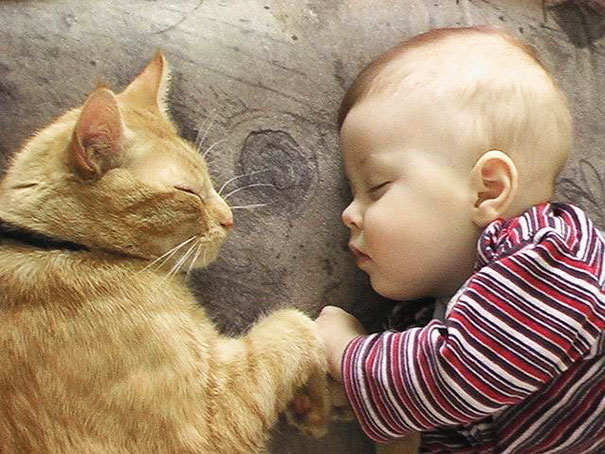Cats do not harm children’s mental health, study finds


An old study published in Schizophrenia Research, concluded that a parasite called “Toxoplasma gondii” in cat faeces can lead to toxoplasmosis and that, if contracted in childhood, it could lead to serious mental illness later in life.
However, newest research from University College London suggests that living with a cat during childhood does not cause mental illness later in life.
“We found that children who were born and raised in households that included cats at any time period; that is, pregnancy, early and late childhood, were not at a higher risk of having psychotic symptoms when they were 13 or 18 years old.” researchers wrote in The Conversation published in the journal Psychological Medicine.
The new study looked at nearly 5,000 people in the United Kingdom who were born between 1991 and 1992 and followed them until the age of 18.
The researchers used birth information to determine whether households had cats when the mothers were pregnant and when the children were growing up. At ages 13 and 18 years, the children were brought IGNORE INTO clinics to be evaluated for psychotic-like symptoms.
After controlling for potential confounding factors, the study concluded that cat ownership in pregnancy and childhood did not play a role in developing psychotic symptoms during adolescence.
The message for cat owners is clear: there is no evidence that cats pose a risk to children’s mental health. In the study, initial unadjusted analyses suggested a small link between cat ownership and psychotic symptoms at age 13, but this turned out to be due to other factors.
Once researchers controlled for factors such as household over-crowding and socioeconomic status, the data showed that cats were not to blame.
That said, separate evidence that suggests parasite exposure can lead to general health problems in children hold up. The parasite “can lead to serious birth defects and other health problems in children,” senior study author Dr. James Kirkbride said in the same statement.
“As such, we recommend that pregnant women should continue to follow advice not to handle soiled cat litter in case it contains T. Gondii” he concluded.
Prepared by





